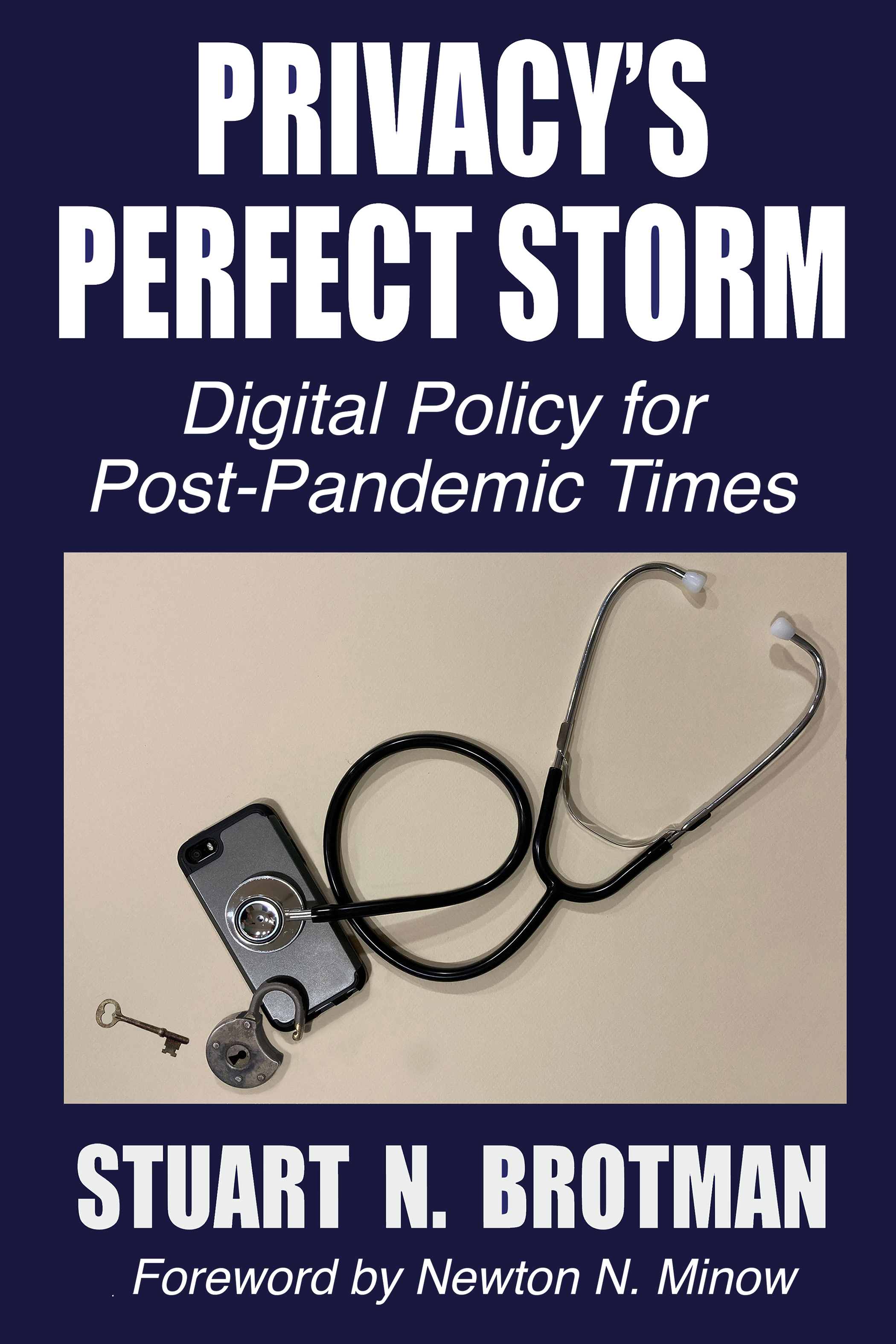
Privacy’s Perfect Storm: Digital Policy for Post-Pandemic Times
By Stuart N. Brotman
The COVID-19 pandemic has expanded online world at work and home to record levels. Our most personal and confidential data is being collected from multiple digital devices and stored, disseminated, and sold to government and commercial organizations, often without our knowledge, consent, or control. We are all now in Privacy’s Perfect Storm, which includes recent efforts by the European Union and the United States to set new legal boundaries. Stuart N. Brotman offers a thoughtful guide to achieving better digital privacy protection in these turbulent times.Brotman offers an incisive perspective on data privacy. He provides a consistently thoughtful approach to tech regulation, always considering what policies might best serve the public and our digital society.
Foreword by Newton N. Minow
Richard T. Kaplar, President and CEO The Media Institute
Stuart Brotman brings a constructive new perspective to the digital privacy dialogue. Drawing on his extensive background as policy adviser, legal analyst, and business consultant, Stuart brings his unique brand of visionary thinking to bear, synthesizing a fresh multi-stakeholder approach to digital privacy policy. His insights on how the COVID-19 pandemic will continue to affect digital privacy in the post-pandemic world are especially prescient. Stuart moves far beyond conventional wisdom in this fascinating and thought-provoking collection of essays. A “must read” for anyone who cares about digital privacy in all its facets—and wants to be ready for what lies ahead.
Margery Kraus, Founder and Executive Chairman APCO Worldwide
The next big thing in technology won’t be another Internet-enabled device or service. It will be the long-delayed regulation of Internet society and its new challenges. Chief among these challenges is the privacy problem. Stuart Brotman’s collection of essays is both an essential guide to understanding the digital privacy policy landscape and a persuasive argument that the way forward demands a flexible multi-stakeholder approach, rather than a “silver bullet” law. A must-read for anyone who cares about how to solve the privacy puzzle—and who wants to be part of the solution
Today, almost every aspect of our lives is in the hands of some third party somewhere. This challenges judgments about reasonable “expectations of privacy” that have been a major premise for defining the scope of U.S. privacy protection for over 100 years. But these judgments present binary choices under this analytic framework: if private information is somehow public or in the hands of a third party, people often are deemed to have no expectation of privacy. This is particularly true when it comes to government access to information—emails, for example, are nominally less protected under our laws once they have been stored 180 days or more, and articles and activities in plain sight are considered categorically available to government authorities. But the concept also gets applied to commercial data in terms and conditions of service and to the scraping of information on public websites.
So as the data universe keeps expanding, more and more of it falls outside the various specific laws on the books. This includes most of the data we generate through such widespread uses as web searches, social media, e-commerce, and smartphone apps. The changes are coming faster than legislation or regulatory rules can adapt, and they erase the sectoral boundaries (e.g., financial, medical) that have largely defined our current privacy laws. It makes little sense that protection of data should depend entirely on who happens to hold it. This arbitrariness will spread as more and more connected devices are embedded in everything from clothing to cars to home appliances to street furniture—the Internet of things.
- Stuart N. Brotman